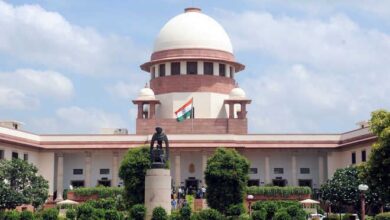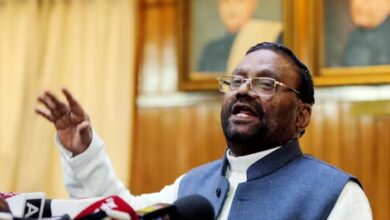Since terrorists don’t follow the rules, the nation’s reaction to them cannot: Jaishankar, EAM
S. Jaishankar, the minister of external affairs, said that India was determined to combat any act of terrorism carried out from beyond its borders and that because terrorists do not follow laws, there can be no rules in the nation’s response to them.

He criticized the United Progressive Alliance (UPA) regime for its handling of the 2008 Mumbai terror attacks, claiming that despite extensive government discussion, nothing useful was produced at the time because it was believed that attacking Pakistan would be more expensive than not attacking it.
Speaking with young people on Friday at an event called “Why Bharat Matters: Opportunity for Youth and Participation in Global Scenario,” he posed the question of how to stop such assaults in the future if they occur today and no one responds.
Jaishankar said that since 2014, the nation’s approach to combating terrorism has changed, as has its foreign policy.
Regarding the nations with whom India finds it difficult to keep partnerships, Jaishankar suggested that India consider whether it should have any links at all.
One is really right next to us. To be honest, Pakistan is the one nation that is really challenging, and we should just consider why. We are one of the causes of this, he remarked.
He went on to say that India’s position would have been quite different if the nation had known from the beginning that Pakistan was engaging in terrorism, something India should never accept.
“Modi ji arrived in 2014. However, terrorism was not an issue in 2014. It wasn’t started by the incident in Mumbai. That was in 1947. The first invaders arrived in Kashmir in 1947 and launched an assault on the region. It was a terrorist attack. Towns and villages were being set on fire by them. People were being killed by them. These were tribal people from the North-West Frontier Province of Pakistan. The army of Pakistan supported them. Kashmir was integrated after we sent the troops, according to Jaishankar.
“While the Indian army was acting, we paused in the middle and went to the UN, claiming, as if it were a legitimate force, that the attack was by tribal invaders rather than terrorists,” the man said.
He further said that Pakistan had deployed infiltrators to undermine the Indo-Pak conflict in 1965.
We need to be extremely clear about one thing: we will not tolerate terrorism from our neighbors or from anybody who tries to coerce you into going to the bargaining table. He said, “This should never be tolerated.
He said that when people ask him whether India’s foreign policy has been constant throughout time, he always says that there has been 50% change and 50% consistency.
“Terrorism is one area of change. Nobody in the nation thought that we shouldn’t have reacted to the assault after the 26/11 Mumbai attack. Everyone in the nation was aware of it. An account of that period exists. The National Security Agency had reported that this minister and that minister had examined it. After much deliberation and study, it was determined that striking Pakistan would come at a higher cost than staying away from it. Thus, after much consideration, nothing useful emerged,” he said.
He underlined that you cannot stop the next Mumbai from occurring if you do not respond to the current one. The terrorists shouldn’t believe that just because they are on the other side of the border, nobody can get to them. There are no rules for terrorists to follow. There can be no rules when dealing with terrorists, he remarked.







